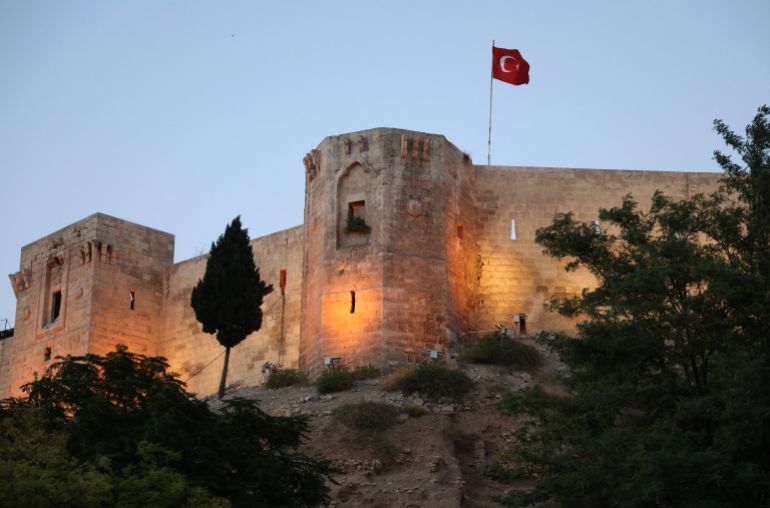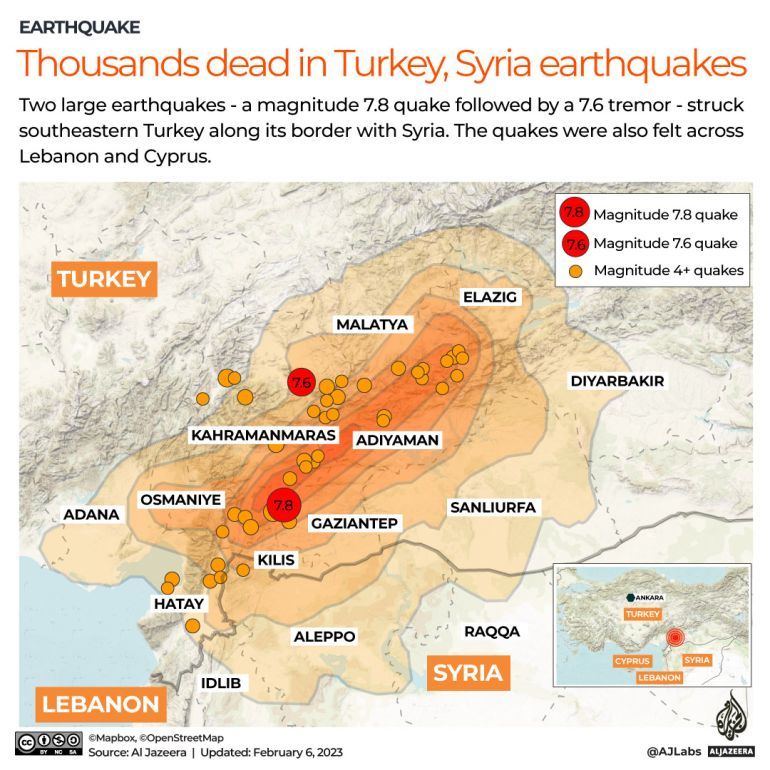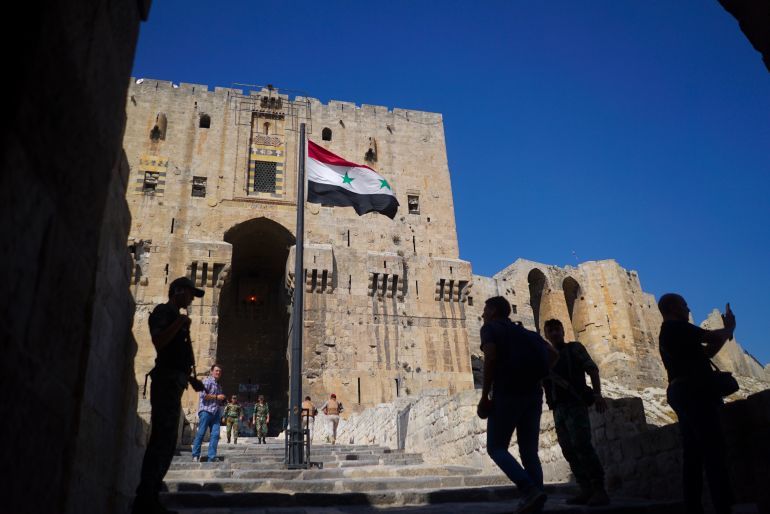
Earthquakes batter Turkey, Syria’s historical monuments
A series of devastating earthquakes and aftershocks in Turkey and Syria, which have left more than 5,000 people dead, have also destroyed or damaged several of the ancient region’s historical monuments that had survived wars and natural disasters for centuries.
Parts of Syria affected by the temblors have also been suffering from a 12-year-long war that too has ravaged some of the iconic architecture that the country, among the cradles of human civilisation, has long been known for.
Experts fear the earthquakes could compound the loss of the region’s cultural legacy — Turkey’s government has said more than 5,600 buildings have been destroyed in just that country. On Tuesday, UNESCO warned that several World Heritage Sites — identified by the United Nations agency for their cultural, historical, scientific and other forms of significance — might have been damaged.
Here are some of the key monuments known to have suffered damage from the earthquakes:
 The Gaziantep Castle in the historical district of the southeastern
Turkish city of Gaziantep, August 11, 2022. The castle was badly damaged
in the earthquakes of February 6, 2023
The Gaziantep Castle in the historical district of the southeastern
Turkish city of Gaziantep, August 11, 2022. The castle was badly damaged
in the earthquakes of February 6, 2023Gaziantep Castle, Gaziantep
Known locally as Gaziantep Kalesi, the second-century AD castle at the centre of the Turkish city of Gaziantep, was partially destroyed, with many of its walls and watch towers levelled, and other parts damaged.
“Some of the bastions in the east, south and southeast parts of the historical Gaziantep Castle in the central Sahinbey district were destroyed by the earthquake, the debris was scattered on the road,” Turkish state-run Anadolu news agency reported on Monday.
The building was initially used as an observation point. It was then developed into a full-fledged castle by the Romans. The monument has been a popular tourist attraction — its long and rich history is a testament to the city’s ancient roots and the myriad waves of visitors and conquerors drawn to this part of Turkey over the centuries.
The castle has undergone renovation numerous times, the last in the early 2000s.

Sirvani Mosque, Gaziantep
Adjacent to Gaziantep Castle, this 17th-century mosque has also suffered serious damage. Its eastern wall and dome partially collapsed, according to Anadolu.
The mosque, one of the oldest in Gaziantep, has long stood tall not just as a religious structure but as an architectural wonder too. Unlike most minarets in mosques, Sirvani Mosque’s towers have two balconies.
 People walk into the Citadel, Aleppo’s famed fortress, in Syria,
September 12, 2017. The ancient castle has largely survived Syria’s
brutal war so far but was damaged in the earthquake
People walk into the Citadel, Aleppo’s famed fortress, in Syria,
September 12, 2017. The ancient castle has largely survived Syria’s
brutal war so far but was damaged in the earthquakeAleppo Citadel, Aleppo
It is one of the world’s oldest standing castles, but it did not escape the earthquake unscathed.
“Parts of the Ottoman mill inside the citadel” of Aleppo have collapsed, while “sections of the northeastern defensive walls have cracked and fallen”, Syria’s Directorate-General of Antiquities and Museums said in a statement.
Parts of the dome of the minaret of the Ayyubid mosque inside the citadel fell off, while the entrance to the fort has been damaged, “including the entrance to the Mamluk tower”, the government agency added.
Meanwhile, UNESCO, in a statement said: “The western tower of the old city wall has collapsed and several buildings in the souks have been weakened.”
Diyarbakir Fortress, Sur
The historic fortress and the adjacent Hevsel Gardens in the Diyarbakir province of Tukey were declared part of UNESCO’s World Heritage List in 2015.
On Tuesday, the UN agency said both had been damaged by the earthquakes. UNESCO’s statement said it was saddened by the “collapse of several buildings” in the fortress.
Yeni Mosque, Malatya
The 17th-century mosque in the ancient city of Malatya in Turkey’s East Anatolia region has repeatedly suffered damage from earthquakes. It was destroyed in the earthquake of 1894 but was then rebuilt. It was again damaged in the earthquake of 1964.
On Monday, many of the monument’s walls came down, according to Anadolu, adding the latest chapter to the mosque’s battle for survival.











